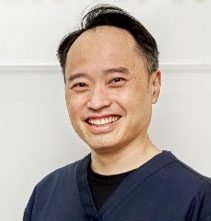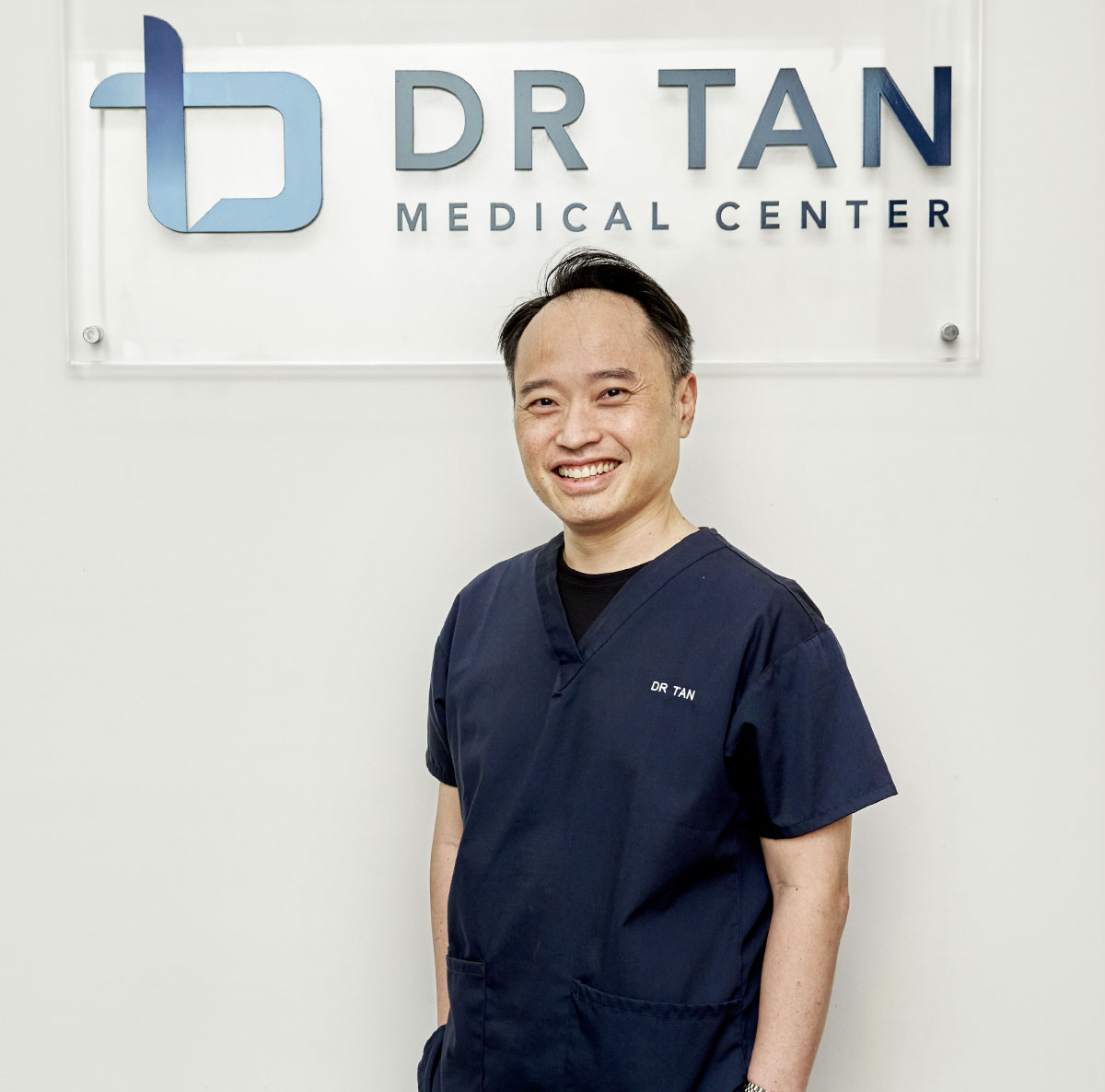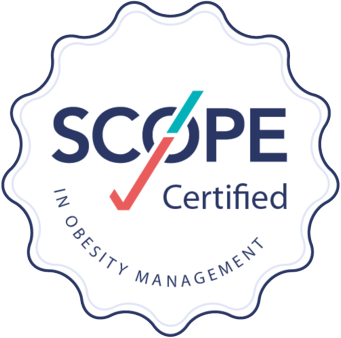Testosterone Deficiency (Hypogonadism) in Singaporean Men
Blog

Dr Tan Kok Kuan
Men’s Health & Sexual Health Doctor
MBBS (S’pore), Cert. Men’s Health, Cert. Clinical Dermatology,Member, Academy for Men’s Health (Singapore)Member, Singapore Association for the Study of ObesityMember, International Society of Sexual Medicine
If you’ve been feeling tired, flat, less driven or just not like yourself, it might not just be stress. Testosterone deficiency (hypogonadism) is common in Singaporean men, especially with age. Many men brush it off, but the effects can be real: lower mood, weaker muscles, reduced libido and slower recovery. Recognising these changes can be the first step toward feeling more balanced and steadier again.
What Is Testosterone Deficiency (Hypogonadism)?
Testosterone deficiency occurs when the body does not produce enough testosterone, the hormone that supports male sexual function, muscle mass, mood and energy levels. The condition may result from problems in the testicles (primary hypogonadism) or from issues affecting the pituitary gland or hypothalamus, which control hormone production (secondary hypogonadism).
Common Symptoms of Testosterone Deficiency
The symptoms of low testosterone often develop gradually and can affect both physical and emotional health. Men may experience the following:
Reduced Sex Drive
: A lower interest in sexual activity is one of the earliest and most common signs.Erectile Dysfunction
: Difficulty achieving or maintaining an erection may occur as testosterone levels drop.Fatigue or Low Energy
: Many men feel tired more easily and notice a decline in stamina or motivation.Mood Changes or Irritability
: Hormonal imbalance can lead to mood swings, low mood or decreased motivation.Decreased Muscle Mass and Strength
: Reduced testosterone can cause a gradual loss of muscle tone and physical strength.Increased Body Fat
: Weight gain, particularly around the abdomen, is common in men with low testosterone.Difficulty Concentrating or Memory Lapses
: Some men report trouble focusing or remembering things as hormone levels decline.Low Bone Density (Osteoporosis)
: Weakened bones can occur over time, increasing the risk of fractures.
If these symptoms persist, it is important to consult a men’s health doctor for assessment and appropriate treatment.
Causes of Low Testosterone in Men
Several factors can contribute to testosterone deficiency, ranging from natural ageing to medical or lifestyle-related conditions.
Ageing
: Testosterone levels naturally decline with age, typically beginning after the age of 30 and continuing gradually over time.Obesity and Sedentary Lifestyle
: Excess body fat and lack of physical activity can lower testosterone production and disrupt hormonal balance.Chronic Medical Conditions
: Health issues such as diabetes, high blood pressure and heart disease are linked to reduced testosterone levels.Hormonal Disorders
: Problems affecting the pituitary gland or hypothalamus can interfere with the body’s ability to produce or regulate testosterone.Medications
: Certain drugs, including steroids, opioids and some antidepressants, can suppress testosterone production.Excessive Alcohol or Substance Use
: Heavy alcohol consumption or substance abuse can damage hormone-producing glands and further reduce testosterone levels.
Diagnosis: When to Seek Help
If you experience any of the symptoms of low testosterone, especially when they persist or affect your daily life, it is important to seek medical advice. Early evaluation helps identify whether the symptoms are due to testosterone deficiency or another underlying condition.
At Dr Tan Medical Center, we provide comprehensive assessments that may include:
- Detailed medical history to review symptoms, lifestyle factors and any underlying health conditions
- Physical examination to assess overall health, body composition and signs of hormonal imbalance
- Blood tests to measure testosterone and related hormone levels, helping confirm the diagnosis and guide treatment
Treatment Options: Testosterone Replacement Therapy (TRT)
If you are diagnosed with testosterone deficiency, your doctor may recommend Testosterone Replacement Therapy (TRT) to restore hormone levels. This therapy can be administered in several forms, depending on your health needs and preferences:
- Topical gels or creams applied to the skin for gradual hormone absorption
- Injections that deliver controlled doses of testosterone at regular intervals
- Oral medications formulated to maintain stable hormone levels
- Testosterone patches that provide a steady release of testosterone through the skin
TRT can help improve energy, mood, libido and muscle strength, enhancing overall quality of life. At Dr Tan Medical Center, Dr Tan Kok Kuan develops individualised treatment plans to ensure safe, effective and closely monitored therapy tailored to each patient’s needs.
Potential Side Effects of TRT
While Testosterone Replacement Therapy (TRT) can provide significant benefits, it may not be suitable for everyone. Some men may experience side effects such as:
- Acne or Oily Skin: Increased testosterone can stimulate oil glands, leading to breakouts.
- Sleep Apnoea: TRT may worsen existing sleep-related breathing issues in certain individuals.
- Breast Enlargement: Hormonal changes may cause swelling or tenderness in the chest area.
- Prostate Issues: Men with prostate conditions should be carefully monitored, as testosterone can affect prostate growth.
- Fertility Issues: TRT can reduce sperm production and may impact fertility.
A thorough evaluation and ongoing monitoring by a qualified men’s health doctor are essential to ensure that TRT is safe, effective and appropriate for each patient’s individual needs.
Lifestyle Changes to Support Hormonal Health
Alongside medical treatment, adopting healthy daily habits can naturally support testosterone production and overall hormonal balance. Simple but consistent changes can make a meaningful difference:
- Eat nutrient-rich foods that contain essential vitamins, minerals and healthy fats to promote hormone regulation and energy levels.
- Combine strength training with aerobic exercise to boost testosterone, improve circulation, and maintain a healthy weight.
- Aim for 7 to 8 hours of restful sleep each night, as poor sleep can lower testosterone and increase stress hormones.
- Apply relaxation techniques such as deep breathing, meditation or yoga to help manage cortisol levels, which can interfere with hormone balance.
- Limit alcohol and avoid smoking, as these vices can impair testosterone production and affect overall health.
If you suspect you may have low testosterone, book a consultation at our clinic for a confidential assessment and professional care. Our men’s health doctor in Singapore, Dr Tan Kok Kuan, provides discreet and comprehensive care focused on accurate diagnosis, clear guidance and treatment tailored to each patient’s needs.

Meet Our Men’s Health Doctor
Dr Tan Kok Kuan
MBBS (S’pore), Cert. Men’s Health, Cert. Clinical Dermatology, Member, Academy for Men’s Health (Singapore) Member, Singapore Association for the Study of Obesity Member, International Society of Sexual Medicine

Dr Tan Kok Kuan is an experienced doctor specialising in men's health, sexual health and medical weight loss. With over 20 years of clinical experience, he offers confidential and effective screening and treatment services. Notably, Dr Tan was one of the key authors of Singapore’s National HIV PrEP Guidelines and the national blueprint to end HIV transmission by 2030. Dr Tan frequently speaks at local and international conferences and has been featured in the media, where he helps raise public awareness around men’s health and sexual health.
“Every patient deserves our fullest attention.”

10 Sinaran Drive #09-30, Novena Medical Centre, Singapore 307506
Tel: (+65) 6513 0359 | WhatsApp: (+65) 9750 5037
Operating Hours:
Monday to Friday: 8:30 AM to 6:30 PM
Saturday: 9:00 AM to 2:00 PM
Closed on Sundays and Public Holidays



